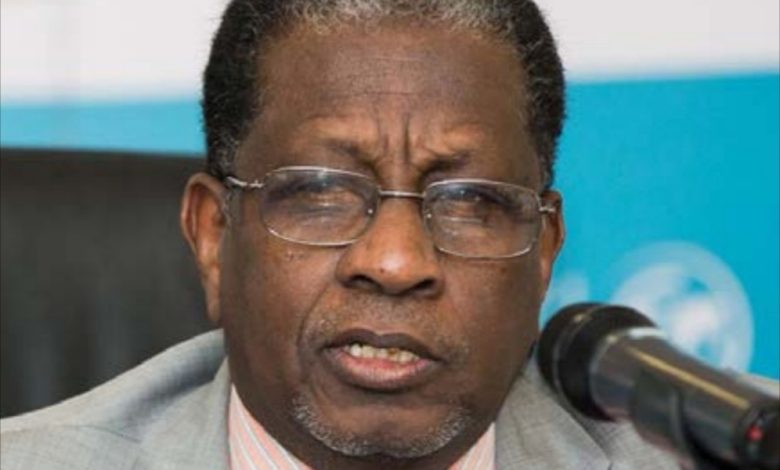The Destructive Dichotomies That Will End the Revolution

Professor Al-Tijani Abdelqader Hamed
In a previous message titled A Glimmer of Hope, I expressed my hope that the new generation would transcend the destructive “Secular/Islamist” dichotomy. Some found this statement puzzling, others were surprised that it came from me, and some requested further clarification. Now, I return to this issue and state that the Secular/Islamist dichotomy closely resembles what is known in the world of business as a “zero-sum game”—where any gain by one party necessarily translates into a significant loss for the other. Any progress achieved by one side is perceived as a direct setback for the other. This creates a perpetual state of enmity and “mutual destruction,” a relationship in which one side can only thrive by eliminating the other. There is no middle ground—neither at the intellectual-psychological level nor at the socio-political level.
A quick look at our contemporary political history reveals that “middle grounds” have indeed shrunk, giving way to dichotomies such as Sunni/Shia (in traditionally sectarian countries), Arab/non-Arab (in ethnically polarized countries), or Secular/Islamist (in nations experiencing modern ideological conflicts). If you, dear reader, follow events in Yemen, Iraq, Syria, Afghanistan, or Libya, you will see how these dichotomies have transformed single nations into fragmented enclaves and divided once-unified societies into warring sects. Brothers now slaughter one another, sacred religious texts have been turned into swords and daggers for these massacres, and the “real enemy” of the nation has won the battle—without even fighting!
And if you think Sudan’s case is less severe, do not be too quick to judge. Just close your eyes for a moment and reflect on what the Secular/Islamist dichotomy has done to us over the past fifty years (1965–2015). Consider this: Nationalist and Islamic forces united to dissolve the Sudanese Communist Party and expel its members from Parliament. The response was swift—the leftist forces seized power through the May 1969 coup, expelling Islamists from political life, universities, and civil and military services. The reaction from the other side was equally swift—Islamists mobilized under the National Front, using the banner of “resisting the communist tide” and took up arms, leading to the Aba Island and Wad Nubawi massacres (1970), as well as the coups of Hassan Hussein and Mohamed Nour Saad, resulting in bloodshed and national paralysis.
Then, the May regime turned against the leftist forces and subjected them to severe repression. In response, the Islamists allied with the May regime and supported its Islamic policies. This, in turn, provoked the secular and leftist forces, who led the April 1985 popular uprising to overthrow Nimeiri’s regime. The left returned to the political scene, demanding the repeal of the September Laws, including Islamic legislations. Again, the reaction was swift—Islamic forces regrouped under the banner of the National Islamic Front to resist the secular leftist surge. In the subsequent elections, the Islamists advanced while the leftists were marginalized. Consequently, the secular leftist forces turned to the south to support the armed rebellion led by John Garang. The Islamists, in turn, seized power in the 1989 coup led by Al-Bashir, claiming to counter the secular/leftist insurgency. This sparked countless battles and wars on multiple fronts, where Islamists, secularists, and nationalists perished, infrastructure was destroyed, diplomatic ties were severed, development was halted, sanctions were imposed on Sudan, and eventually, South Sudan seceded. Yet, the Secular/Islamist dichotomy remains firmly in place, and the cycle of hostility continues unabated.
Based on all this, do I not have the right to describe the Secular/Islamist dichotomy as destructive? I entered the political arena in the mid-1960s, when this atmosphere dominated, and I engaged in the same ideological battles as my generation. The leftist forces plotted against us, and we plotted against them. Throughout this cycle of scheming and counter-scheming, we failed to recognize the “bleeding wound” our actions inflicted on our nation. We debated an Islamic constitution while malaria and bilharzia claimed lives. We clashed over whether the state should be secular or Islamic while desertification swallowed up farms and grazing lands. We fought over the September Laws while millions starved and countless minds fled the country.
Isn’t continuing down this path a form of political insanity?
Some die-hard ideologues remain entrenched in this binary—one side seeking to eradicate political Islam, the other striving to eliminate the secular left. Let them be; they will neither develop new ideas nor build a nation. They will continue down the same road their predecessors walked in the 1950s. However, what remains of the nation should not be dragged with them into the abyss. A neutral national program is the path to the future. And there is no power except with God.



